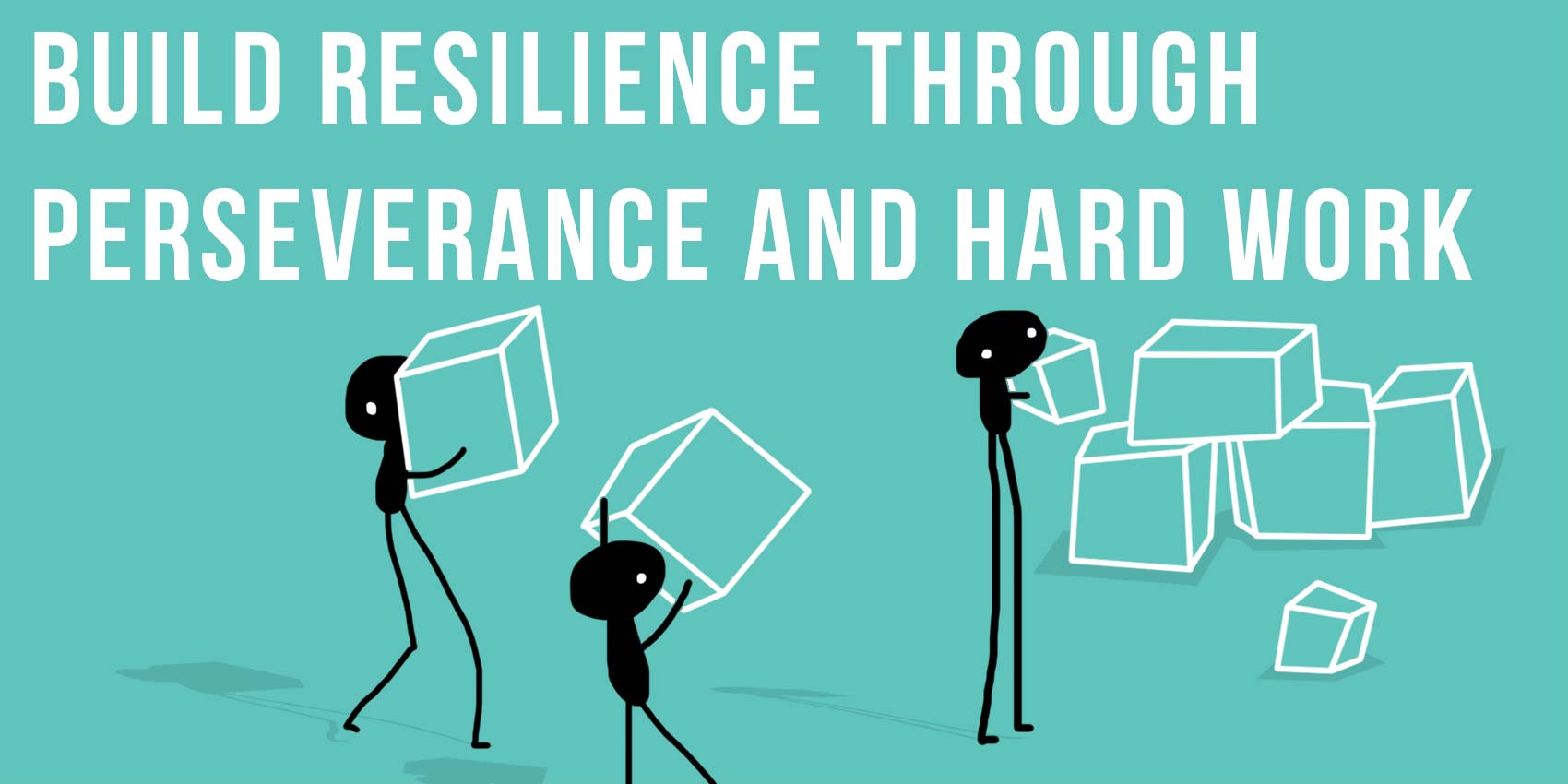23 Oct Build resilience through perseverance and hard work

Imagine this (it’s not too hard, we’re pretty sure you’ve experienced something like this before): your history teacher gives you a massive group project that’s due in one week. Your group splits up the work load evenly, but when you regroup in three days you find out Ernie hasn’t done a thing (except play Fortnight) and Matilda has the flu and can’t do anymore. This means you and Bibbles (Yes, Bibbles), have to take over Ernie’s portion and Matilda’s and get everything done in the next two days.
Of course, you and Bibbles are furious at Ernie (who wouldn’t be?) and feel life has handed you a slice of unfair pie. You don’t have a lot of creative solutions: the project is due in two days and your teacher was clear that everyone would be graded as a group no matter what. So what happens here?
Hard work happens here. Being resilient in this situation requires you to work some long hours and do more than your fair share. It is also going to require you to persevere through how tired you may feel while getting the work done. If your friends are all going out to get ice cream, you will probably need to decline the offer to join them and simply keep working. That’s another part of perseverance and hard work: you stay committed to your goals despite the frustration and anger you may feel and despite other activities that might be more appealing.
The ability to work hard means that you need to forego doing some fun things now while sitting through something you really don’t want to do (you really don’t find the history of Tristan Du Cunha that fascinating, it’s the most remote place in the world for a reason). Your feelings of frustration, unfairness and being overloaded are valid but you are able to recognize that you will need to put them aside to succeed.
In fact, for resilient people, feeling uncomfortable and struggling isn’t something that makes them lose heart. Struggle and even failure are simply viewed as part of the process of achievement and not something that should stop a person from reaching his/her goals.
This also means that failure is seen as part of the process. Resilient people do not look as failure as an end but as a beginning. Failure is something that teaches them what DOESN’T work so that they can turn their focus to what DOES work. Many young teens are often worried about getting something wrong and feeling like they failed when they are wrong. Highly resilient people don’t view being wrong or failing that way. Failure is a teaching tool. It helps them to learn.

Thomas Edison, inventor of the light bulb said, “I have not failed. I’ve just found 10,000 ways that won’t work.”
They have PERSPECTIVE on failure…




Post Question:
Describe a time you “failed” but learned.
Answer the post question here
What's being said